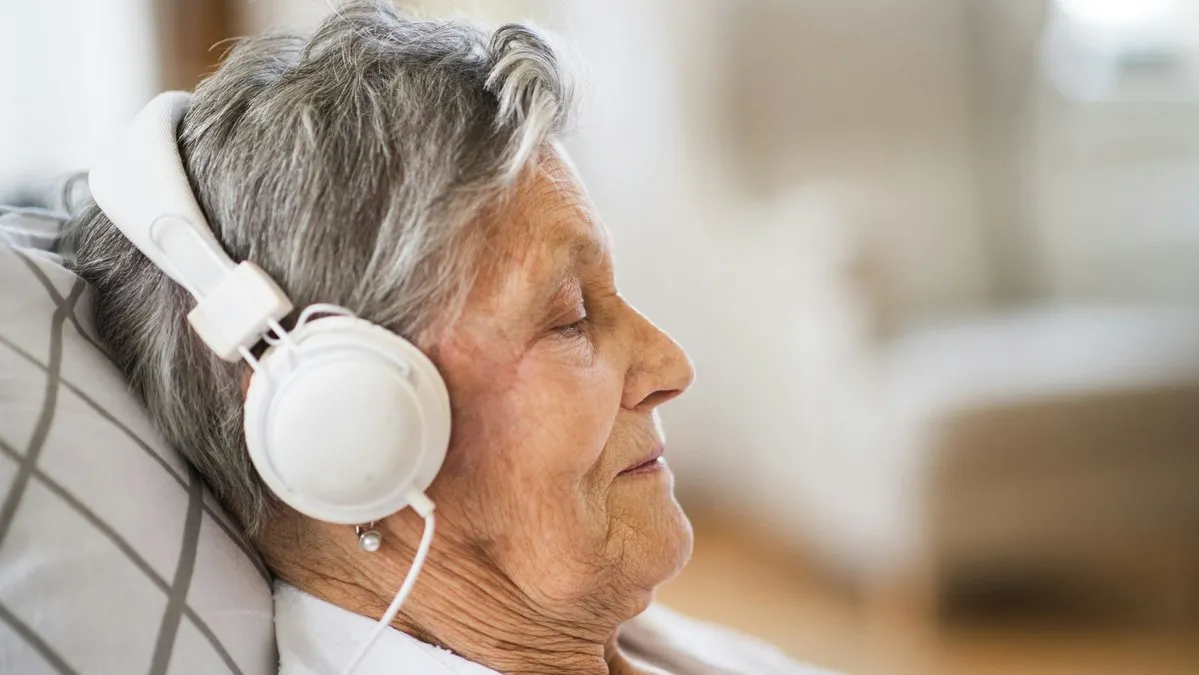Blog
Music Therapy for Memory and Mood in Seniors

Music has a unique way of touching the heart and mind. It can transport us back in time, calm our nerves, or lift our spirits in an instant. For seniors, especially those facing memory loss, loneliness, or depression, music can be more than just enjoyable. It can be therapeutic.
Music therapy has become one of the most powerful and joyful tools in senior care, offering emotional comfort, mental stimulation, and even physical benefits. Whether it’s listening to a favorite song, singing along to familiar tunes, or playing an instrument, music has the ability to spark memories and create meaningful moments.
The Power of Music for the Aging Brain
As people age, changes in the brain can affect memory, mood, and communication. However, musical memory often remains remarkably strong, even in seniors with conditions like Alzheimer’s or dementia. Songs from the past can awaken emotions and memories that might otherwise seem lost.
Scientific studies show that music therapy can:
- Stimulate memory recall by activating parts of the brain associated with long-term memory.
- Reduce anxiety and depression through the release of feel-good hormones like dopamine.
- Improve focus and attention for seniors with cognitive challenges.
- Encourage social interaction through shared musical experiences.
- Promote relaxation and reduce agitation for those experiencing confusion or restlessness.
Simply put, music has a profound way of reconnecting seniors to themselves and their world.
How Music Therapy Works
Music therapy can take many forms, depending on a senior’s needs and abilities. It may be led by a certified music therapist, a caregiver, or even a family member who knows what songs bring joy.
Common approaches include:
Listening to Familiar Music
Listening to songs from one’s younger years can spark vivid memories and positive emotions. A familiar melody can bring comfort, especially for those living with dementia or Alzheimer’s disease.
Singing or Humming Along
Singing stimulates brain activity and helps with speech, breathing, and emotional expression. Even seniors who struggle with verbal communication may hum or sing along to songs they know well.
Playing Instruments
Simple instruments like tambourines, drums, or bells encourage movement and coordination. The rhythmic aspect also helps with stress relief and focus.
Movement and Dance
Gentle dancing or moving to music promotes physical activity, balance, and flexibility, while adding fun and laughter to the day.
Songwriting and Lyric Discussion
Talking about the meaning of a song or writing simple lyrics helps seniors express emotions and share life stories in creative ways.
Emotional and Social Benefits
Beyond cognitive health, music therapy has deep emotional value. Seniors often face feelings of isolation, especially when living alone or managing health challenges. Music brings comfort, connection, and joy in moments when words might not be enough.
Benefits include:
- Improved mood and reduced stress.
- Increased social engagement during group sing-alongs or activities.
- Sense of identity and self-worth, as familiar songs remind seniors of meaningful life moments.
- Stronger bonds between caregivers, seniors, and family members through shared enjoyment.
Music bridges gaps, it speaks when speech fails, and it heals when comfort is needed most.
How Caregivers Can Incorporate Music Therapy
Caregivers can make music therapy part of everyday care routines. It doesn’t require formal training, just patience, observation, and a willingness to connect.
Here are a few simple ways caregivers can use music to brighten a senior’s day:
- Play familiar songs from their youth or favorite genre during morning routines or meals.
- Encourage gentle movement or clapping along to upbeat tunes.
- Use calming music during bedtime or personal care activities to create a peaceful atmosphere.
- Sing together while preparing meals or organizing the home.
- Observe reactions, a smile, foot tap, or hum can reveal what type of music resonates most.
At At Home Care, Inc., our caregivers understand that emotional well-being is just as important as physical health. Through personalized companionship and engaging activities like music therapy, we help seniors rediscover joy, connection, and comfort in their daily lives.
Final Thoughts
Music is more than entertainment—it’s a powerful form of therapy that nurtures the heart and mind. For seniors, especially those facing memory loss or loneliness, it can bring back cherished memories, ease anxiety, and create moments of pure happiness.
At Home Care, Inc. has proudly served Mississippi families since 1998, providing compassionate care that promotes emotional, mental, and physical wellness. Whether through music, conversation, or companionship, our caregivers are dedicated to helping seniors live with dignity and joy at home.
Would your loved one benefit from compassionate, engaging in-home care that includes personalized activities like music therapy?
Call At Home Care today at (601) 437-3524 or visit https://at-home-care.com/contact-us/ to learn how we can help your loved one stay connected, comforted, and cared for through the healing power of music.
